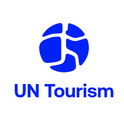UNWTO Calls For A More Equal And Sustainable Future For Tourism At ITB Berlin
The World Tourism Organization (UNWTO) has returned to ITB Berlin to lead the conversation on the current challenges facing the sector, and the opportunities to be seized in the future.
As the United Nations specialized agency leads the restart of global tourism following the unprecedented crisis caused by the COVID-19 pandemic, three virtual events brought together voices from across the sector at the leading trade fair. Against a backdrop of ongoing uncertainty, UNWTO outlined a positive narrative for tourism, stressing its historic ability to lead from the front and adapt to new challenges.
Less Waste, More Opportunity
On the opening day of ITB Berlin Now, UNWTO ensured sustainability was high on the agenda, leading efforts to ensure the sector lives up to its responsibilities for planet as well as people. "Eliminate. Innovate. Circulate: Strategies from the Global Tourism Plastics Initiative", hosted jointly by UNWTO, the United Nations Environment Programme (UNEP) and the Ellen MacArthur Foundation, featured key insights from both public and private sectors. The event showcased how addressing plastic waste and pollution within tourism can support the sustainable recovery of the sector in the aftermath of the pandemic, noting both the progress that has been made and the challenges still to face.
Alongside UNWTO's commitment to greater sustainability, a commitment to gender equality is a key priority. On the second day of ITB Berlin, and against the backdrop of Women's History Month, UNWTO hosted a special panel on "Gamechangers" and female entrepreneurs within tourism. The event featured presentations by the five female winners of the UNWTO SDGs Startup Competition, outlining how their enterprises can contribute to addressing key issues such as gender equality, poverty alleviation and providing decent work for all.
Communications for Tourism's Recovery
Also at ITB Berlin, UNWTO looked ahead to tourism's restart, bringing together leading voices from across the media to explore the need for a new narrative to fit the rethink and restart of tourism with sustainability as the driving goal. The "Communications for Recovery" event featured expert participants from Google Arts & Culture, the BBC, Euronews and Voyages Afrique, alongside high-level private sector participants from Expedia and Stark Communications. The panel identified how the pandemic has changed the way the media present tourism and promote destinations, with members universally expressing their optimism in tourism not only returning to growth but also both tourists themselves as well as stakeholders across the sector taking a greater interest in the impact of tourism on communities and people and planet.
Alongside hosting events, UNWTO also contributed expert insights to a discussion on Tourism for Sustainable Development. The event was organized by the German Ministry for Economic Cooperation and Development (BMZ) and the German Corporation for International Development (GIZ).
About UN Tourism
The World Tourism Organization (UN Tourism) is the United Nations agency responsible for the promotion of responsible, sustainable and universally accessible tourism.
As the leading international organization in the field of tourism, UN Tourism promotes tourism as a driver of economic growth, inclusive development and environmental sustainability and offers leadership and support to the sector in advancing knowledge and tourism policies worldwide.
Our Priorities
Mainstreaming tourism in the global agenda: Advocating the value of tourism as a driver of socio-economic growth and development, its inclusion as a priority in national and international policies and the need to create a level playing field for the sector to develop and prosper.
Promoting sustainable tourism development: Supporting sustainable tourism policies and practices: policies which make optimal use of environmental resources, respect the socio-cultural authenticity of host communities and provide socio-economic benefits for all.
Fostering knowledge, education and capacity building: Supporting countries to assess and address their needs in education and training, as well as providing networks for knowledge creation and exchange.
Improving tourism competitiveness: Improving UN Tourism Members' competitiveness through knowledge creation and exchange, human resources development and the promotion of excellence in areas such as policy planning, statistics and market trends, sustainable tourism development, marketing and promotion, product development and risk and crisis management.
Advancing tourism's contribution to poverty reduction and development: Maximizing the contribution of tourism to poverty reduction and achieving the SDGs by making tourism work as a tool for development and promoting the inclusion of tourism in the development agenda.
Building partnerships: Engaging with the private sector, regional and local tourism organizations, academia and research institutions, civil society and the UN system to build a more sustainable, responsible and competitive tourism sector.
Our Structure
Members: An intergovernmental organization, UN Tourism has 160 Member States, 6 Associate Members, 2 Observers and over 500 Affiliate Members.
Organs: The General Assembly is the supreme organ of the Organization. The Executive Council take all measures, in consultation with the Secretary-General, for the implementation of the decisions and recommendations of the General Assembly and reports to the Assembly.
Secretariat: UN Tourism headquarters are based in Madrid, Spain. The Secretariat is led by the Secretary-General and organized into departments covering issues such as sustainability, education, tourism trends and marketing, sustainable development, statistics and the Tourism Satellite Account (TSA), destination management, ethics and risk and crisis management. The Technical Cooperation and Silk Road Department carries out development projects in over 100 countries worldwide, while the Regional Departments for Africa, the Americas, Asia and the Pacific, Europe and the Middle East serve as the link between UN Tourism and its 160 Member States. The Affiliate Members Department represents UN Tourism's 500 plus Affiliate members.
